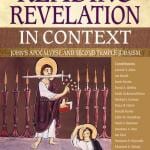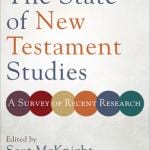I am launching a new blog series called: “Theology is Green.” This series will be about why Christians should care about cultivating, caring for, and saving the planet.
Truth be told, I used to care little—really not at all—about the earth. But, especially over the last fifteen years, I have turned around on this subject. Yes, some of my habits have changed (I have an electric bicycle now!), but also my attitude towards God, God’s world, and God’s creatures, and the role of humans in this world. We are at a critical juncture in world history where Christians need to think carefully about our place in the wider context of God’s creation. To start off, I want to counter three bad arguments for why Christians shouldn’t care.
Myth #1: God’s going to destroy the world anyway, why bother with the earth?
There are some biblical texts that deal with what we might call cosmic dissolution (e.g., Isaiah 34:4), and it appears that a time will come when earth, sky, and stars are destroyed. But you will probably notice these statements often happen in poetic kinds of settings in the Bible. My interpretation of this is that it is not narrating destruction of physical things and replacement with spiritual things (why bother with the physical to begin with?). Rather, the dissolution language points to the renewal of all things. It is not so much that the earth will vanish, as it will be redeemed. We might say the same things about our bodies. We will have resurrection bodies, and they will be “different” in some ways, but they are still bodies. I hope we don’t think to ourselves now, “Let’s ruin our bodies because they will decay anyway.” No, we know that the gifts God has given to us matter, and we are expected to respect and preserve them.
Myth #2: The Bible is all about salvation, not hugging trees
There is a latent (sometimes overt) Gnosticism in our modern Western theology that tries to divide “spiritual” things (like salvation) and “earthly” things (like work). The biblical view of “salvation” is so much bigger than saving souls for an ethereal heaven. Paul talks about all creation groaning in pain and despair, anticipating freedom and redemption (Rom 8:22). And who do they (God’s creatures) place their hope in? The children of God (Rom 8:19).
Myth #3: The Bible doesn’t talk directly about earth care, so it must not be important
There are a lot of things the Bible doesn’t talk about, because it comes out of a certain time and place. The Bible doesn’t talk about how we use technology (like iPhones), but it would be ridiculous to say Christians ought not to have thoughtful reflections on the use of screens.
There are (2) quick reasons the Bible doesn’t address this head-on. (#1) Because of the importance of agriculture to the economy in the ancient world, it was in everyone’s best interest to treat the earth and animals well. Today, we are so removed from the food/materials production process that we don’t see the damaging steps that have often been taken. (#2) Because of industrialization and advancement in technology, we can do destructive things to the earth on a scale that wouldn’t have been fathomable back then. Think about littering and trash. In Jesus’ time there were no plastic cups, no napkins floating around the streets. There were no cars and airplanes to pollute the atmosphere. Yes, people were cutting down trees, but with machines now we can wipe out forests rapidly.
Questions?
I will have maybe 5-6 posts on this subject, but I am interested in the questions that you have. Keep in mind, I am not a scientist, I am a biblical theologian, so I am trying to engage with Scripture and theology. You can leave a question in the blog comments or on social media. Mean-spirited/jerky questions will not get answered.












